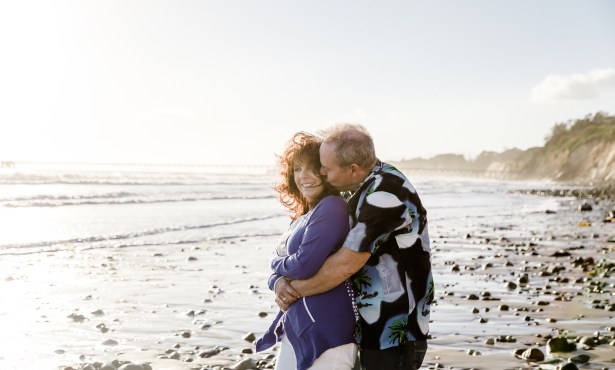When Is Hospice Needed?
How It Works and a List of Resources Available in Santa Barbara
Hospice is specialized, compassionate care for people with a terminal illness and includes services and support for their families and caregivers. Here are the important points to understand about the practice:
• The patient’s medical prognosis must be six months or less; however, if a patient lives longer, hospice care can be extended.
• Hospice services are provided wherever the patient is: home, hospital, clinic, or special hospice facilities.
• Medical hospice care addresses pain as well as the emotional, social, and spiritual needs so that patients and their families can focus on comfort and quality of life.
• Hospice offers family members and caregivers counseling, respite care, and help with practical matters such as cooking, cleaning, and transportation.
Hospice Resources in Santa Barbara
Hospice of Santa Barbara: 2050 Alameda Padre Serra, Ste. 100;
(805) 563-8820; hospiceofsantabarbara.org
• Doctors’ orders and prognosis are not required
• All services are free of charge
• Individual, family, and group counseling for children, teens, and adults
• Support groups include loss of late-term pregnancy, widows/widowers, and pet loss
• In-home evaluation and support
• All services are available in Spanish
• Specially trained and supervised volunteers
• Respite care, household help, transportation
• Companionship and support
• Community outreach and education programs
VNA Health/Serenity House: 512 E. Gutierrez St.; (805) 965-5555;
vna.health
• Operates Serenity House, an 18-bed inpatient hospice house
• Doctors’ orders are required: six months or less prognosis
• Insurance is billed
• Medical care, pain and symptom relief
• Bereavement support
• Dietary counseling
• Integrative therapies: reflexology, guided imagery, music, aromatherapy, reiki
• All services are available in Spanish
• Specially trained and supervised volunteers
Assisted Home Care: 302 N. Milpas St.; (805) 569-2000;
assistedcares.com
• Doctors’ orders are required: six months or less prognosis
• Insurance is billed
• Bereavement support
• Veteran services
• All services are available in Spanish
• Specially trained and supervised volunteers
Sarah House: 2612 Modoc Rd.; (805) 563-9990; sarahhousesb.org
• Prognosis of less than three months
• Residential end-of-life care for people with low income
• Eight private bedrooms in a shared living environment
• Medical care can be integrated through local hospice providers
• Caregiver respite and support
Death Doulas and Midwives
The movement to return death to a human event, not a medical one, has spawned the emergence of this new health professional: the death doula. According to the National End-of-Life Doula Alliance, the role of the doula is to “provide non-medical holistic support and comfort,” helping families and patients recognize death as part of the natural cycle of life. See nedalliance.org.
In a similar vein, Los Angeles–based Mitch Metzner is a midwife who devotes his life to supporting people along their final journey. “A good death is not always possible, but a better death almost certainly is,” explained Metzner, who assists the dying and their families to face death meaningfully and consciously. See mitchmetzner.com.


